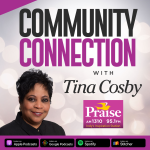EXCLUSIVE FIRST PERSON ACCOUNT! On a day when Federal, State, Local governmental offices and agencies were closed. On a day when no public agencies were holding committee meetings. On a holiday. The IPS School Board again showed their disdain for the public interest and seemingly to hide from media coverage, by scheduling a crucial committee to hold a public meeting on the July 3rd/July 4th Holiday. But even though the Indianapolis mainstream and education media were absent, Afternoons with Amos was present, along with some 80 members of the public, mainly IPS employees, to hear the discussion of IPS’ Committee on School Autonomy.
The IPS School Board and Administration are seriously considering proposals to grant some IPS schools more “autonomy”. This is fueled in part by the reformist school board who believes school autonomy would reduce costs and improve student achievement. It’s also driven by recent state law that creates “Innovation Schools”, charters or partnerships with charter or other organizations TO operate schools within IPS buildings, with greater freedom and authority to the principals or leadership of those individual schools. The IPS School Board created a committee which includes IPS teachers, IPS administrators, and two Board members Mary Ann Sullivan and Sam Odle. The Committee is chaired by David Dresslar, a veteran educator, former Superintendent, who headed the University of Indianapolis’ Center for Excellence in Leadership and Learning (CELL). The committee met for two hour Friday afternoon and discussed a variety of options for explored what school autonomy is.
Patched into the meeting by telephone conference call was Dr. Marguerite Roza a Research Assistant Professor at Georgetown University and Director of the university’s Edunomics Lab. Dr. Roza, whose expertise is educational finance, was previously at the Center on Reinventing Public Education at the University of Washington and a former fellow at the Bill and Melinda Gates Foundation. She talked at length with the committee about successful school autonomy models. Dr. Roza cited the example of the Denver Public Schools which began limited autonomy in some schools in 2008 and are about to make school autonomy district wide. Also Baltimore schools were discussed. One problem with looking at the Denver and also Baltimore is that both of those systems are far larger than IPS. Denver has some 87,400, 57.5% Latino, 21.2% white, 14.1% Black. Baltimore has 85,000 students, 82.7% Black, 8% white, 7.4% Latino. Nowhere in the discussion were there any examples cited of school autonomy in districts the size of IPS, around 30,000 students. While Dr. Roza’s discussion with the committee focused a lot of the financial aspects of school autonomy, neither she nor other committee members provide examples of how school autonomy helps improve education, especially for minority children. A June 13, 2015 editorial in the Denver Post extolling the virtues of Denver’s school autonomy admitted this: “The district has improved in many areas, but the growth has been slow. Particularly frustrating is that the achievement gap between minorities (Blacks and Latinos) and their white or Asian peers remains cavernous.” One of the keys to school autonomy is the ability of the school leader – the principal – to handle the additional responsibilities and freedom that goes with autonomy. In a school autonomy model, principals have the power to hire/fire their staffs, set the style of learning, and have greater control of their budget and how the monies are spent, how resources are allocated. But the IPS’ Autonomy Committee has a credibility issue in that one of the committee’s members is the principal of George Washington High School, a school that’s been racked by violence, racial turmoil, building upheaval, staff turnover, large numbers of classes taught by substitutes the past school year. How a principal at such a challenged school is part of committee recommending greater power and freedom from oversight is mind-boggling.
One problem in the conversation is no one seems to know, not even IPS, what they’re looking for in school autonomy. While the IPS Board has discussed this and obviously IPS Supt. Dr. Lewis Ferebee and other top administrators have discussed this issue, IPS hasn’t involved or engaged the general public about the subject. That vacuum of has created doubt, uncertainty and fear among parents and especially among IPS staff. A large contingent of IPS bus drivers attended the meeting. Afterwards they expressed their fears to me about school, autonomy and what it negatively could mean to bus drivers, custodians and other support staff. At the end of the meeting, Chairman Dresslar apologized for holding the meeting on a holiday but claimed it was the only date the committee members could meet. That doesn’t hold water because except for Dr. Roza and Dresslar, all the other committee members are IPS employees or board members. There are no parents or members of the public. And more insulting, in a district where a quarter of the students are Latino, there are no Latinos on this critical committee. Chairman Dresslar hopes to have the committees recommendations sent to the School Board by October. An aggressive timeline for a subject that needs far more study and public debate.















